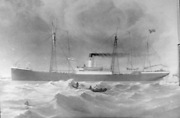 Hartlepool Sports & Leisure
Hartlepool Sports & Leisure
- Cinemas, Theatres & Dance Halls
- Musicians & Bands
- At the Seaside
- Parks & Gardens
- Caravans & Camping
- Sport
 Hartlepool Transport
Hartlepool Transport
- Airfields & Aircraft
- Railways
- Buses & Commercial Vehicles
- Cars & Motorbikes
- The Ferry
- Horse drawn vehicles
 A Potted History Of Hartlepool
A Potted History Of Hartlepool
- Unidentified images
- Sources of information
- Archaeology & Ancient History
- Local Government
- Printed Notices & Papers
- Aerial Photographs
- Events, Visitors & VIPs
 Hartlepool Trade & Industry
Hartlepool Trade & Industry
- Trade Fairs
- Local businesses
- Iron & Steel
- Shops & Shopping
- Fishing industry
- Farming & Rural Landscape
- Pubs, Clubs & Hotels
 Hartlepool Health & Education
Hartlepool Health & Education
- Schools & Colleges
- Hospitals & Workhouses
- Public Health & Utilities
- Ambulance Service
- Police Services
- Fire Services
 Hartlepool People
Hartlepool People
 Hartlepool Places
Hartlepool Places
 Hartlepool at War
Hartlepool at War
 Hartlepool Ships & Shipping
Hartlepool Ships & Shipping

Lizzie English Technical Specification
| Length (feet) : | 198.5 |
| Breadth (feet) : | 28.6 |
| Depth (feet): | 16.0 |
| Gross Registered Tonnage (g.r.t.) : | 673 |
| Net Registered Tonnage (n.r.t.) : | 435 |
| Engine Type : | 96hp |
| Engine Builder : | Blair & Co. Stockton-on-Tees |
| Additional Particulars : | Iron screw; well deck; 3 masts; 4 bulkheads. Official No. 54570; Code Letters HPVS |
Related items :
 Lizzie English
Lizzie English
 Created by unknown
Donated by HHT&N
Created by unknown
Donated by HHT&NA rather fuzzy black & white image of a painting of the Lizzie English.
More detail » Lizzie English (1867) - a general history
Lizzie English (1867) - a general history
Official No. 54570; Code Letters HPVS: thought to be the first well deck steamer built.
Owners: George Pyman & Co, West Hartlepool; 1875 George Pyman & Co (TE Pyman mgr/owner) West Hartlepool.
Masters: 1867-68 Thomas A Pyman:;1869 Luty; 1869-70 Bowden; 1871 Mackenzie; 1872 Danby; 1872 McKenzie; 1873-74 J Brotchie; 1875-77 R Humphrey; March 1878 Sunley; 1878 Robinson; December 1878 Smith; 1879 Robinson.
Bound from Galatz for Leghorn with a valuable cargo of grain & a crew of 12 Lizzie English went ashore on a dark night with a heavy sea near Keraburnow, 21 miles from the Bosphorus, on 20 September 1879. The Garipole light was seen but was mistaken for the lightship at the entrance to the Bosphorus which was why they stranded. The crew remained aboard for about 18 hours until a gale sprang up & it was decided to abandon the vessel. They left in three boats of which two reached shore but the third was smashed by the heavy surf throwing the seven occupants into the boiling sea. Samuel Palmer risked his life by swimming through the surf & dragging John Long to safety. He then went back into the water & saved William Nilsson. Both men were brought to shore unconscious but recovered. The remaining five all drowned. Lizzie English was seen to go to pieces soon after.
The survivors were taken to Constantinople where an inquiry into the casualty was held. This resulted in the master’s certificate being suspended for six months & the mate’s certificate being cancelled.
On the recommendation of the British Consul at Constantinople in December 1879 Captain Samuel Palmer of the International Lifeboat Service was awarded the Royal Humane Society medal for plunging into the sea & rescuing two of the crew of Lizzie English.
Lives lost September 1879:
Fowler, Charles, 2nd engineer, Stockton-on-Tees
Humble, Christopher, 3rd engineer, Stockton-on-Tees
Sliney, William, able seaman, Bristol
Sparks/Parks, Joseph, boatswain
Austrian seaman
Survivors September 1879:
Long, John, mate
Nilsson, William, fireman
Robinson, master
More detail » Pyman S.S. Co. Ltd.
Pyman S.S. Co. Ltd.
George Pyman was born in May 1822 in Sandsend, North Yorkshire. He went to sea as an apprentice and by 1843 he was Master of the vessel Nameless.
He married Elizabeth English in 1843 and they had two daughters and seven sons.
In 1850 he left the sea and the family settled in West Hartlepool where he went into partnership with his brother-in-law Francis English, as grocers and ship chandlers. In about 1854 he changed direction and went into partnership with Thomas Scurr as shipbrokers for the local collieries. They owned shares in a number of sailing vessels. Other shareholders included Francis English, John Smurthwaite, Thomas Wood & Ralph Ward Jackson.
Thomas Scurr died in 1861 and George then formed his own company as George Pyman & Co. In 1865 he purchased his first steamship, the George Pyman, and gradually shares in the brigs were sold off. Eventually the company became the largest owners of steamships in the north of the U.K.
In 1873 Thomas Bell of Newcastle joined as a partner in the firm. From 1879 the company opened branches in Hull, Grimsby, Immingham and Glasgow. When George retired in 1882 the Bell family took over the running of the company.
Pyman, Watson & Co. was set up in Cardiff in 1874 by John, one of George’s sons along with Thomas Edward Watson and Francis and Frederick, another two of his sons, set up Pyman Bros. in London in 1903. Some of these companies ships were registered in West Hartlepool.
George was elected a Poor Law Guardian in 1861, an Improvement Commissioner in 1868, and was sitting on the Durham County Bench from 1872. In 1879 he was appointed Vice Consul for Belgium and in 1888 was elected the second Mayor of West Hartlepool. In 1895 he received the honour of being made a Freeman of the Borough. George died in November 1900 at his home, Raithwaite Hall.
There is a wealth of further information in Peter Hogg’s book ‘The Pyman Story’.
More detail »



